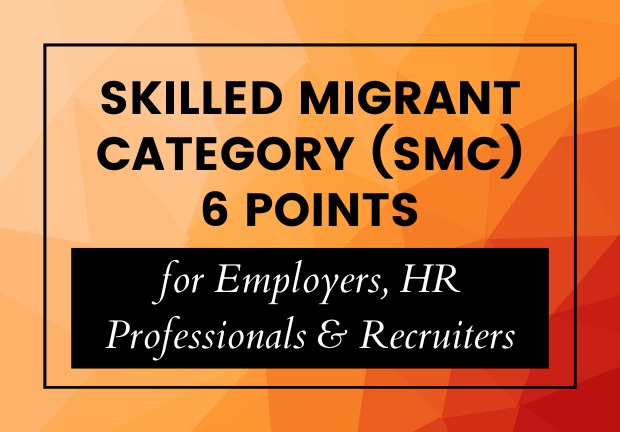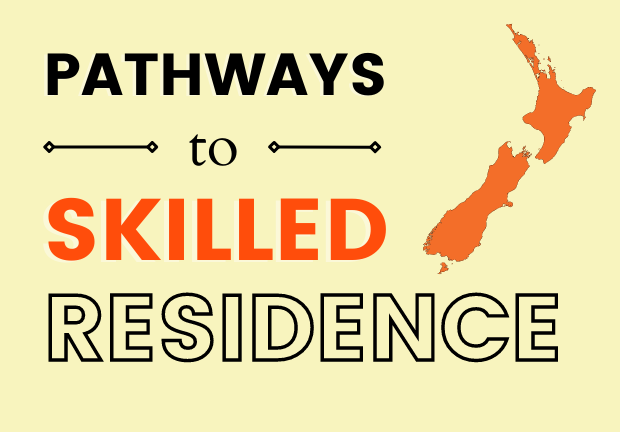Your Immigration Guide – The Latest in Immigration for Employers
20 July 2023- Written by Arunima Dhingra – Director of Aims Global, Chair of NZAMI and Senior Licensed Immigration Adviser #200900407
We are a few months away from elections, we have a new minister of immigration, and all things immigration are buzzing. Almost all awaited policies have now been announced, and most are in action. Partner work rights changed last month, the accreditation regime is spreading its reach, we now have details on the brand-new Skilled Migrant Category starting in October, Parent Category residence selections start from the ballot in August, and the list goes on.
The number of things employers, HR professionals, and recruiters need to be aware of when it comes to immigration is constantly growing. It is vital that employers remain up to date with this information because the implications for their organizations are significant. So here is a handy guide that covers the latest in immigration.
Latest statistics – Accredited Employer Work Visa (AEWV) scheme
As of 31 May 2023, 24,356 businesses have been accredited by INZ; 35,232 job checks have been approved, resulting in 63,078 AEWVs. The top nationalities where these migrant workers are coming from are Philippines followed by India and China. Builder’s Labourer is the most common occupation, followed by Carpenters and Cooks.

Net migration numbers for the year
Recent figures released by Stats NZ in June have shown a considerable uptick in migrant arrivals. For the year ending April 2023,
- Migrant arrivals - 171,812
- Migrant departures - 99,482
- Annual net migration gain of 72,330

In the aftermath of COVID-19, the market and wider economy has been in recovery mode. A majority of the 72,330 individuals are in the country on different types of work visas. Most sectors facing labour shortages have relied on arriving international workforce to address the shortfall.
In a recent interview with Radio NZ, our CEO Arunima Dhingra was asked for her comments on what these statistics and the net gain, means for NZ, and whether she felt that NZ was the first choice for most migrants. Her response was that it is great NZ is finally able to re-attract migrants, especially in industries where there has been a dire shortage. She stated that it is without a doubt that NZ businesses have an ongoing need of migrant talent and to remain competitive on a global scale, its immigration system needs to be able to operate at par. You can hear her thoughts and the discussion here.
Post-accreditation checks
Immigration New Zealand (INZ) recently announced that employers who had applied for their accreditation before 4 July 2023 will receive it with a validity of 24 months. If you are an accredited employer, you made a set of commitments to INZ through declarations in the accreditation application form. It is imperative that you adhere to these obligations, as failure to do so can result in stringent consequences. INZ conducts random post-accreditation checks on businesses to ensure that guidelines are being followed and have confirmed that they will take an educative approach in the beginning to assist businesses in understanding the importance of meeting their compliance obligations. However, businesses that don’t toe line repeatedly will not get away with it lightly. Defaulters are being reined in for non-compliance through measures like stand-downs and even permanent bans. You can go through a detailed list of INZ’s penalties for non-compliance here.
INZ has also rolled out a tool where you can check the accreditation status of employers in New Zealand. This is quite a handy tool for those who need to secure a job with an accredited employer or are already on a visa that requires them to work for an accredited employer and are looking to change jobs. The employer database is updated weekly; access it here.
If you would like to know about what employers need to look out for after getting accredited, and where the pitfalls may be, here is a handy piece to read.
Upcoming Changes to the Accredited Employer Work Visa
Starting from November 2023, the government plans to roll out a new regulation related to the Accredited Employer Work Visa (AEWV). This change will introduce a maximum continuous stay of five years for individuals who are not clearly on a pathway to residence. Those who fail to meet the education, qualification, occupation, or wage thresholds required for skilled residence pathways will be required to depart New Zealand for a period of 12 months before being eligible to apply for another AEWV.
It's important to note that time spent on other temporary visas, such as a Post Study Work Visa or Working Holiday Visa, will not be counted towards the five-year maximum continuous stay for AEWV holders.
To align with this upcoming change, those already on AEWVs will be able to apply for a further visa to get up to five years in total (including time already spent on an AEWV). Further details on this regulation are expected in the coming months.
Changes to Partner Work Rights
Effective 31 May 2023, INZ has made several changes to the work rights for partners of AEWV and those that hold the phased out Essential Skills Work Visas (ESWV).
Hereon, only partners of certain migrant workers will get open work visas. Specifically, partners of:
- Migrants working in roles that pay at or above twice the median wage.
- Migrants working in roles that are on the Green List.
Partners of all other AEWVs that are paid at or above the median wage will now get a work visa with conditions that require them to work for NZ Accredited Employers AND the role will have to be paid at the median wage or above. These work visa holders will no longer be able to undertake self-employment while on the partnership-based work visa, unlike previous times.
Partners of AEWVs that are paid below the median wage will only get visitor visas.

Employers and recruiters who were previously hiring from this pool of open work visa candidates, will no longer be able to do so without checking the 'conditions’ of their work visa first.
Here is a list of frequently asked questions on this topic.
Latest 6-point Skilled Migrant Category (SMC) – starting October 2023
A new simplified points system will be introduced for the Skilled Migrant Category (SMC) Resident Visa on 9 October 2023. The current SMC, which is at 180 points, will close on 15 August 2023.

In this new SMC, an applicant can claim points from at least one section from the blue box above. If the applicant can get all 6 points from the blue box, they don’t need anything from the red box. However, if they are short of a few points, the remaining points can come from the red box. Irrespective of where they claim points from, they must have a ‘skilled’ job offer from an Accredited employer.
This new version is quite different in its structure and calculation, but some key points remain the same.
If you’d like to find out more about this category, the differences in the two and how your employees may be eligible, please read more here.
You can have your employee book a consultation with one of our immigration advisers by clicking here.
Parent Resident Visa – First ballot selection in August 2023
The first ballot for the revised Parent category residence visa opens in August 2023. An Expression of Interest (EOI) is the first step in this application, which when submitted, goes into a queue or a ballot depending on when INZ received it.
- The queue is for EOIs received on or before 11 October 2022. The first selection by INZ was on 14 November 2022 and continues to occur every three months since.
- The ballot contains EOIs received on or after 12 October 2022. The first selection for this lot is in August 2023, then every 3 months after that.
The government has increased the yearly quota of visa approvals for this category from 1000 to 2500. INZ has stated that they will select enough to reach 2000 visa approvals each year from the queue (until there are no EOIs remaining in the queue) and 500 visa approvals each year from the ballot.
The sponsor(s) must meet the revised income threshold to be able to support their parent(s) for residence and must have held a residence visa for 3 years to be eligible.
Here is a link for more information on this category and some frequently asked questions
Upcoming Webinars & Events
We run regular webinars for employers, HR professionals, and recruiters throughout the year where we simplify immigration policies and key updates and provide handy tips to help better navigate the world of immigration. Register here for the upcoming webinar in October 2023 or the whole series and stay up to date with immigration policies important for your people and your business.
You can also join us to hear from a panel of industry experts on whether immigration today is built for our future workforce. If you’d like to attend in person or virtually, please register your interest through this link.




.png)